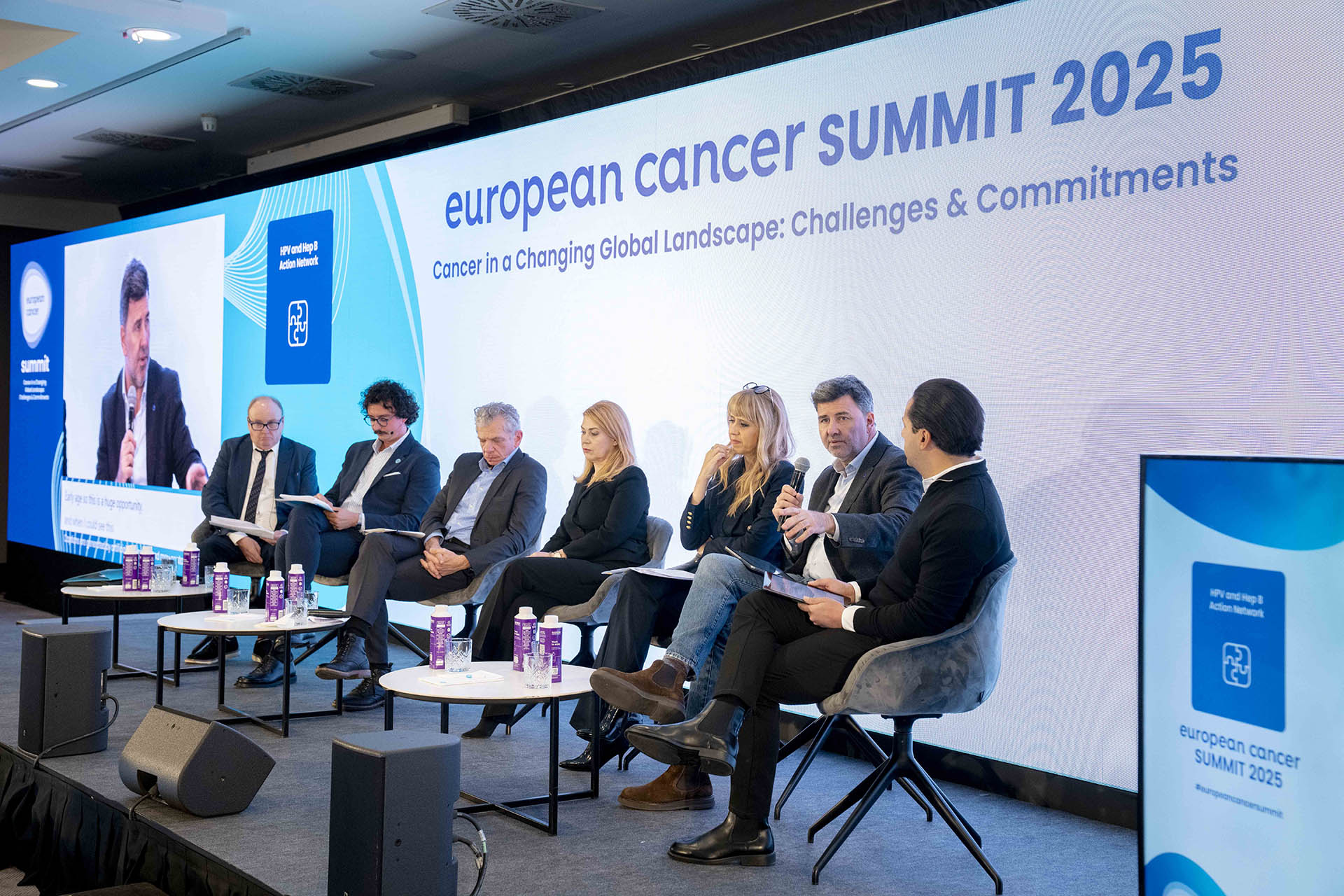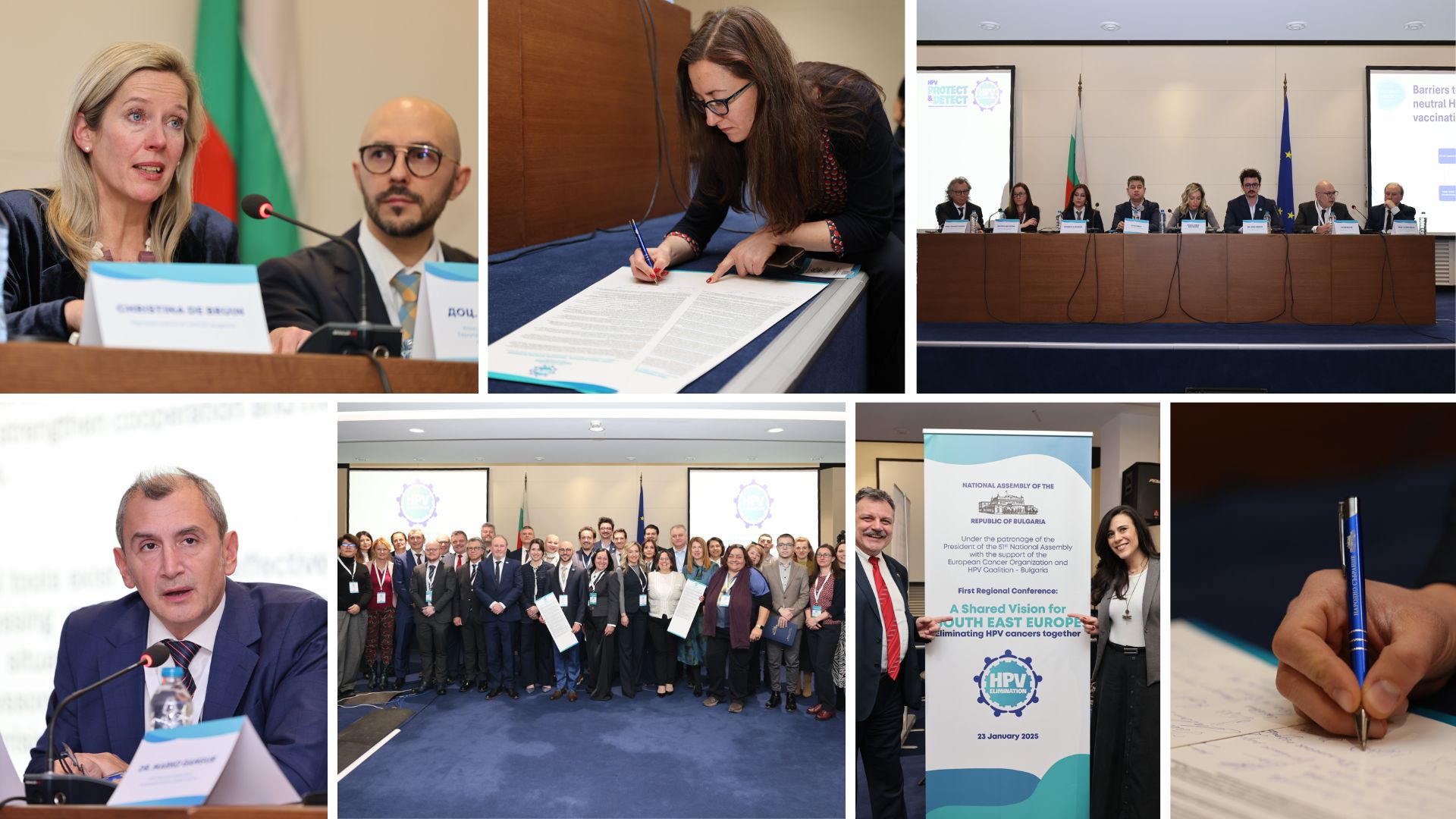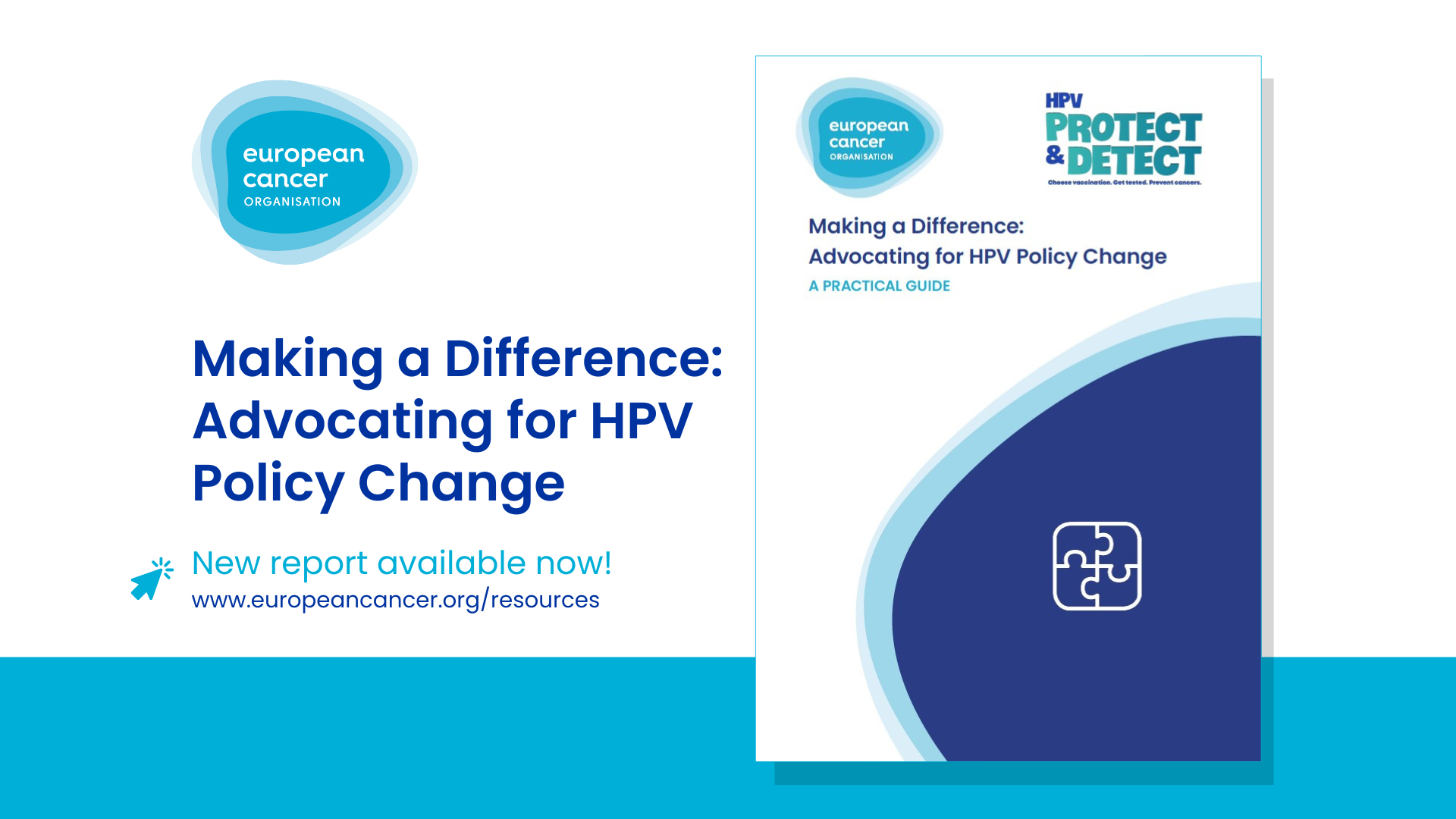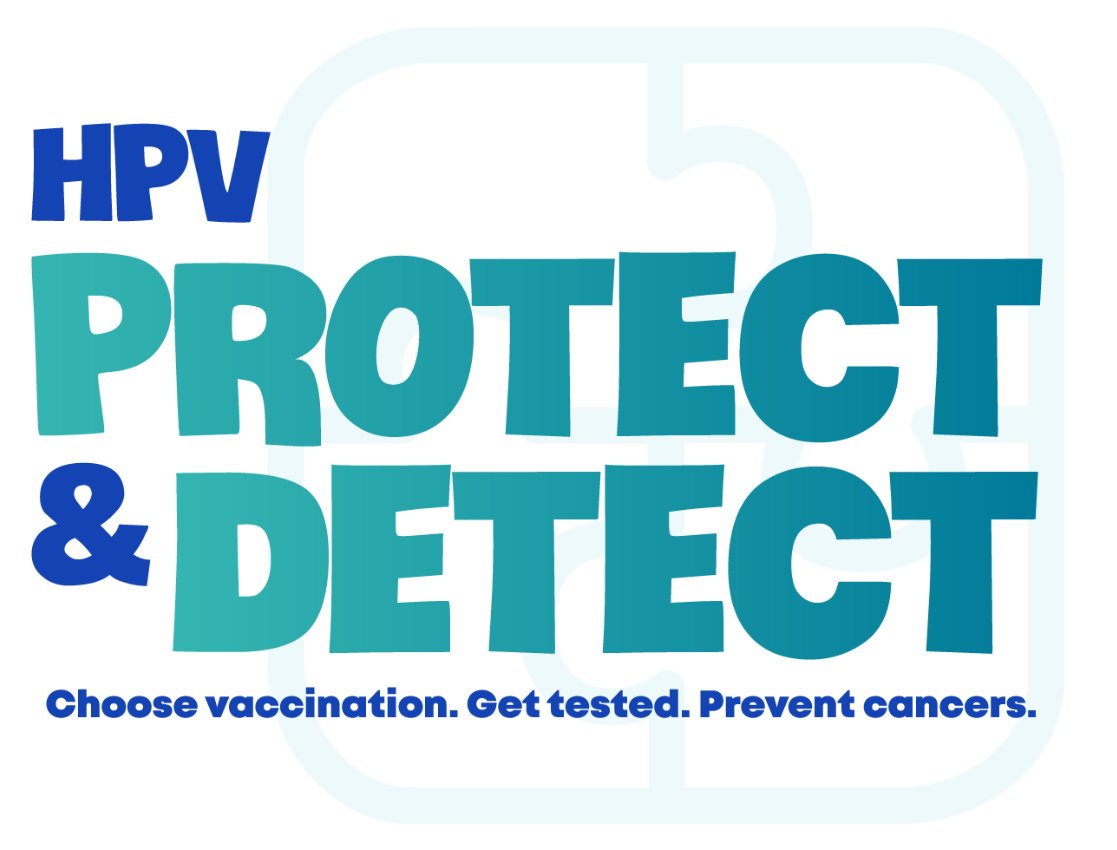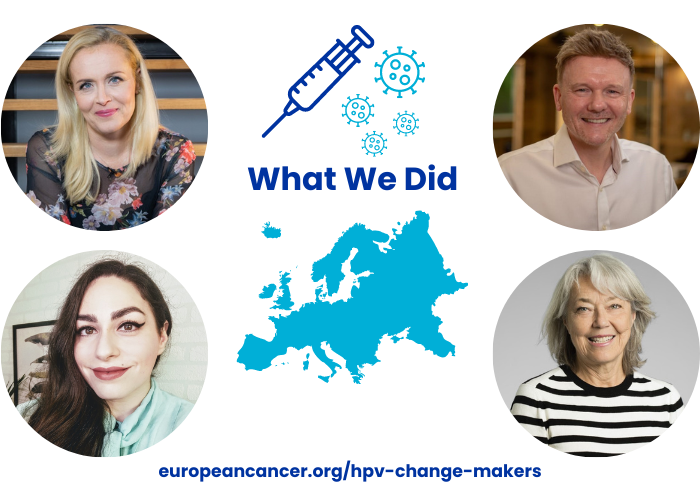HPV and Hep B Action Network
Contact the NetworkThis Focused Topic Network promotes initiatives to eliminate the human papillomavirus (HPV) and the hepatitis B (HepB)'s associated cancers.
Current areas of focus include:
- Promote awareness around screening and prevention of cancers caused by the human papillomavirus, such as cervical cancer.
- Advance HPV cancers elimination efforts in the South East Europe region, strengthening key areas such as vaccine registries, the efficiency of vaccination rollouts, and the quality of screening programmes.
- Actively promote the South East Europe Declaration launched in January at the Bulgarian Parliament to build momentum and support.
- Promote the updated EPF/ECO HPV Elimination Atlas.
- Champion the recently adopted Council Recommendation on Vaccine-Preventable Cancers, focusing on topics such as the ECDC role and new vaccination target for boys.
European Cancer Summit: Watch the 2025 HPV & Hep B Session - Accelerating Momentum for HPV-related Cancers Elimination in Europe
Closing the Gaps: ECO Publishes a New Report on Cervical Cancer Screening in Europe
A new report from ECO and its HPV and Hep B Action Network highlights persistent inequalities in cervical cancer screening and HPV testing across Europe. It calls for stronger implementation of EU recommendations, greater coordination among European countries, and more cohesion in vaccination and screening programmes.
Read it here.
Accelerating Progress Towards the EU's HPV Cancer Elimination Goal: A Path to the Finish Line
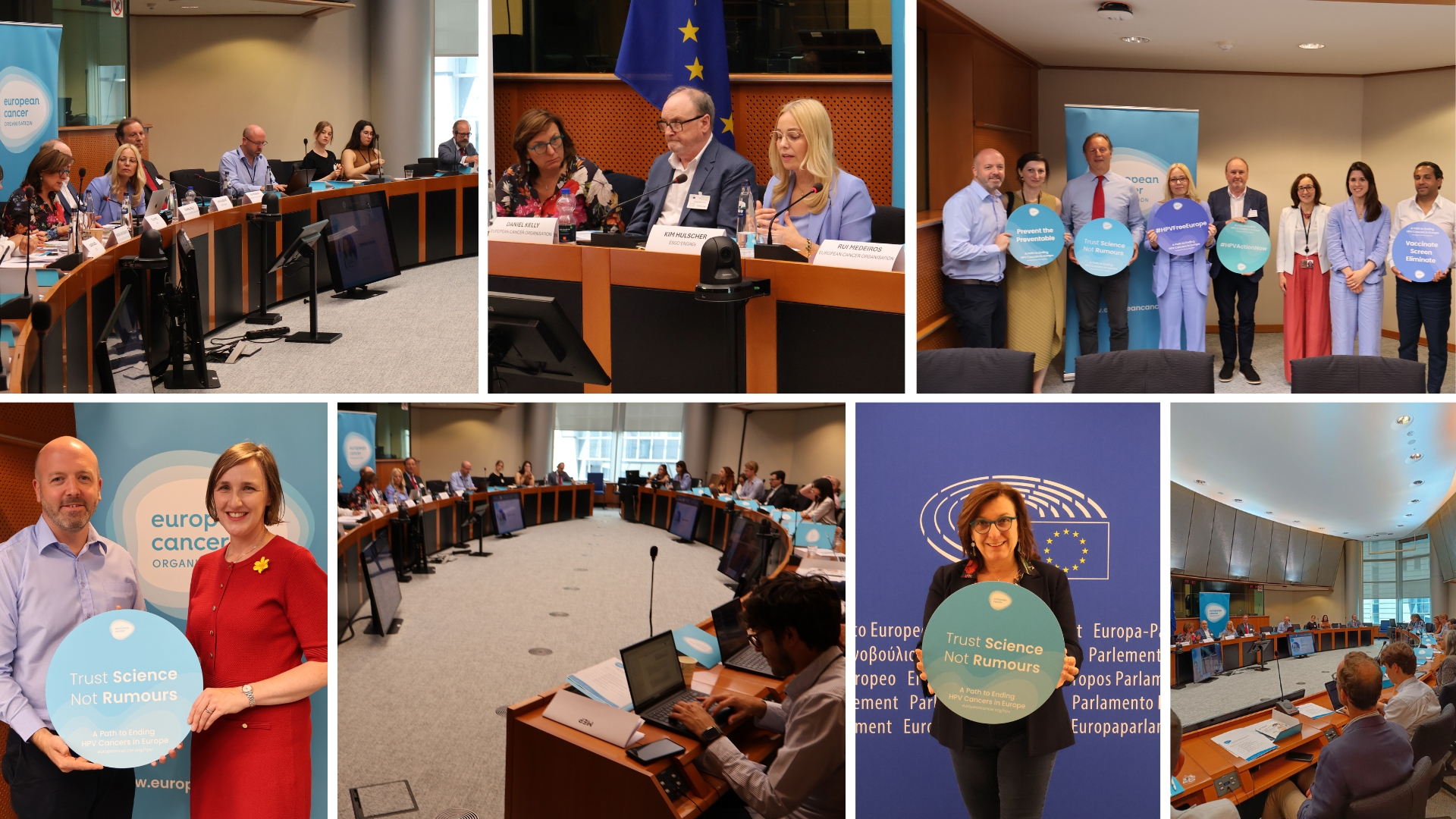
On 15 July 2025, the European Cancer Organisation and its HPV and Hep B Action Network, in collaboration with MEP Tilly Metz, hosted a high-level event at the European Parliament to reflect on the EU’s progress so far and reignite political momentum for the road ahead.
You can read the key recommendations from the event here.
A Shared Vision for South East Europe: Eliminating HPV Cancers Together
The European Cancer Organisation held on 23 January 2025 a conference titled: A Shared Vision for South East Europe: Eliminating HPV Cancers Together. The event was proudly held at the Bulgarian Parliament building, with thanks to the kind hosting of Natalia Kiselova, Chairwoman of the Bulgarian Parliament.
The conference served as a platform to strengthen regional collaboration, share successful practices, and discuss challenges and opportunities for the new year in combating HPV-related cancers across borders in South East Europe.
Read our Report - Making a Difference: Advocating for HPV Policy Change
HPV is one of the most significant issues in European cancer policy. Effective vaccination and screening programmes are now widely recognised to offer the possibility of eliminating tens of thousands HPV cancers each year in European men and women. In many countries, however, progress is slow and too many lives are being lost unnecessarily.
Advocacy can help to put that right. Organisations and individuals can work together to put effective pressure on decision makers, cut through the inertia, and create cancer prevention services of the type and scale that are urgently needed across the region.
This guide is based on the experience of many of them. It distils the lessons learned into eight essential ingredients for advocacy success. We hope it will be useful not only to the campaigns highlighted in this guide but also to others engaged, or who might yet be engaged, on this vital issue.
Read the publication here.
PROTECT-EUROPE
Vaccinating Europe to Protect Against HPV Cancers

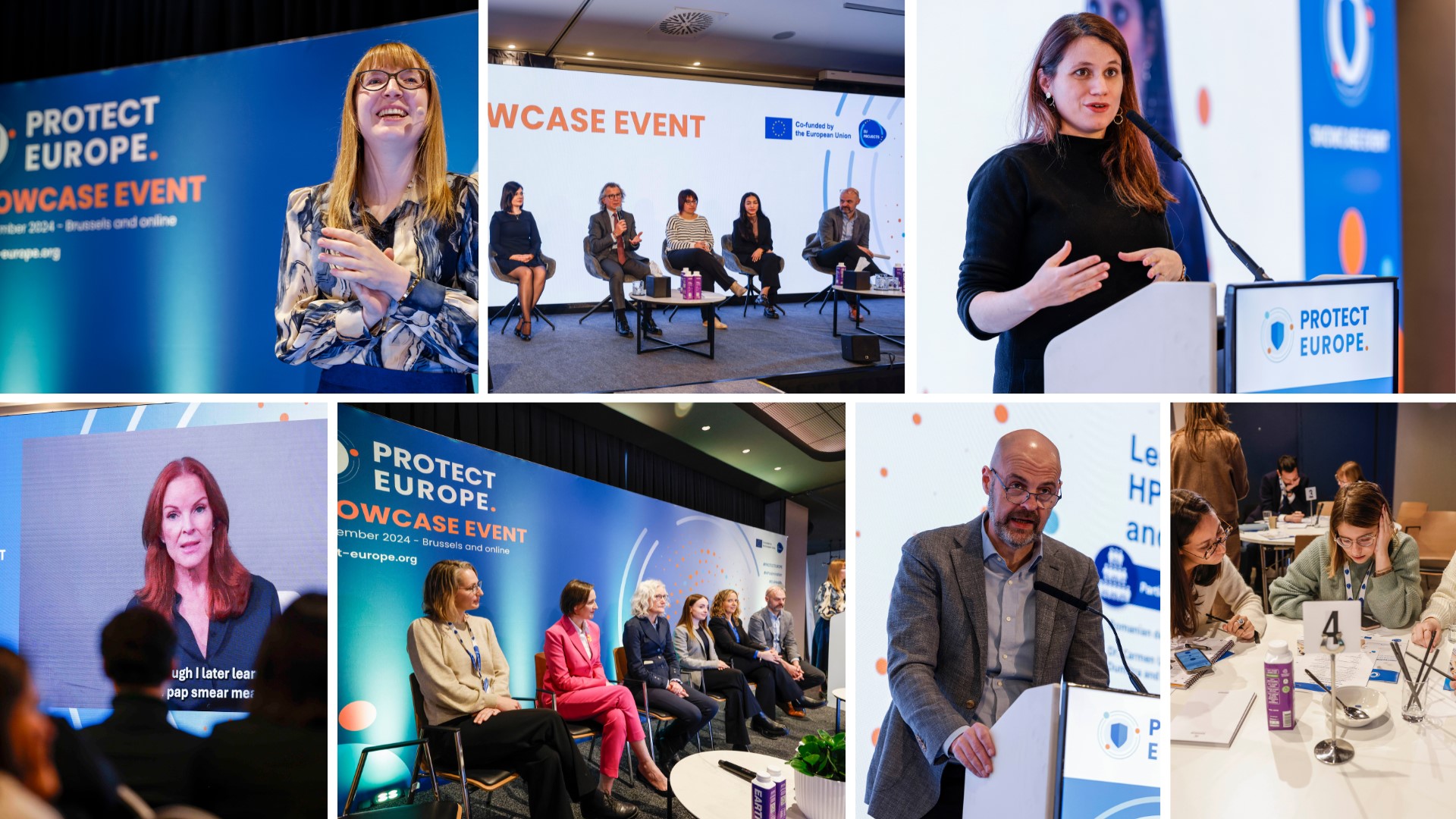
PROTECT-EUROPE was an EU4Health project that champions gender-neutral vaccination programmes in EU Member States. This is essential to prevent HPV cancers, including cervical, anal, penile, vaginal, vulval and oropharyngeal cancers.
ECO co-ordinated the project and, in consultation with more than 30 consortium partners, led the communication and dissemination package. In March 2024 the PROTECT-EUROPE hub was lunched, containing the latest lessons learned from the project, including peer-reviewed discoveries, best practices, training modules, public awareness tools, and links to an assortment of valuable external resources.
The project ended in December 2024. Read more here, while here you can read the final report from the project, with 26 tailored recommendations for stakeholders and healthcare professionals.
 |
 |
HPV Action Now in Europe
The European Cancer Organisation's HPV and Hep BAction Network seeks to eliminate all HPV cancers, following the recommendations in Europe's Beating Cancer Plan.
To do this, we are actively supporting ongoing campaigns across several European countries to expand HPV vaccination and cervical cancer screening.
Please check this page to learn more.
HPV Change Makers
HPV causes a variety of different cancers, often resulting in suffering and death. The tragedy is that almost all these cancers are preventable with a vaccine and periodic screening. But how to get governments to offer these services and their citizens to accept them?
Meet some inspiring advocates who have made a powerful case for change in their countries.
HPV Testimonies
HPV Testimonies features personal stories of 10 men and women who have experienced different HPV cancers. Their stories illustrate how HPV can affect anyone. They reveal the physical and emotional journeys of people as they dealt with their diagnosis and the treatments that followed – the impact on their lives and on those around them, and the challenges of getting back to a ‘normal’ life. As EU member states explore implementation of Europe’s Beating Cancer Plan, it is essential that decision makers keep the voices of patients front and centre as they make their plans.
Latest Network Reports
- Closing the Gaps: The Status of Cervical Cancer Screening Programmes in Europe
- Improving HPV Vaccine Uptake in Children, Adolescentes and Young Adults
- Putting HPV on the Map: The State of HPV Prevention Programmes in the WHO European Region
- Position paper on self-sampling and HPV screening in Europe
- Viral Protection: Achieving the Possible. A Four Step Plan for Eliminating HPV Cancers in Europe
Background
This network was originally launched in 2019 with a single focus on a single virus: the human papillomavirus (HPV). The HPV Action Network, as it was then called, was issued a clear objective by more than 300 stakeholders attending that year's European Cancer Summit: ‘By 2030, effective strategies to eliminate cancers caused by HPV as a public health problem should be implemented in all European countries.'
The new network's official launch came just a few weeks later at the European Parliament in Brussels with the support of the late Professor Véronique Trillet-Lenoir MEP.
By then the data were undisputable. HPV, a common sexually transmitted infection, causes 4.5% of all cancers in men and women worldwide. Cervical cancer is the most commonly caused cancer, but HPV is also responsible for a high proportion of anal, penile, vaginal, vulval, and head & neck cancers. According to IARC's Global Cancer Observatory, in 2020 HPV was responsible for approximately 22,000 cancer cases in men and 85,000 cancer cases in women in the WHO European Region. HPV also causes genital warts and recurrent respiratory papillomatosis (RRP), a rare but disabling breathing condition.
In 2023, the European cancer community voted to expand the network's focus to include another virus:. Hepatitis B (HBV) is responsible for approximately 55% of all liver cancer deaths and 45% of all deaths due to cirrhosis and other chronic liver disease and results in approximately 64,000 deaths annually across the EU/EEA and the United Kingdom.
ECO's new HPV and Hep B Action Network brings together organisations and individuals from a wide range of backgrounds who share the ambitious but highly achievable goal of eliminating all the cancers and other diseases caused by these two viruses.
To learn more or to support our work, please contact us This email address is being protected from spambots. You need JavaScript enabled to view it. .


